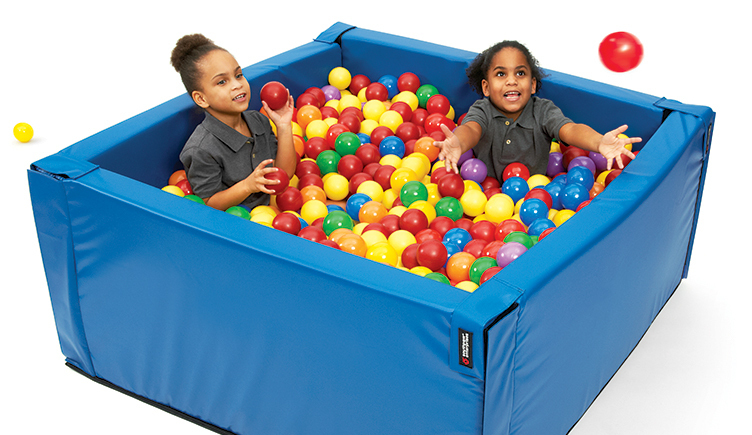The other day, as I was in conversation with a friend who is preparing for her first year as a kindergarten teacher, we began to discuss how children are missing the development building blocks to help them meet the growing expectations of kindergarten. She was enlightened to learn that there is so much that can take place naturally in her classroom to help work on these building blocks. In addition, she found the perspective I provided as an occupational therapist beneficial to setting up her classroom. So, it got me thinking, do we truly offer to educate others and follow through, especially to those in early childhood education, about the value we can add to the school team?
As school therapists run around with caseloads busting at the seams, what would happen if we changed a bit of our approach, almost like preventive care, and start developing kids right from the start? What if we built OT components and skills into our classrooms, especially in preschool and kindergarten, that would enhance their attention, fine motor, motor planning and sensory skills through play and activity before we had to worry about adding them to our caseloads? If we helped teachers right from the start to incorporate activities that develop the skills children need early on, then maybe our caseloads would become more manageable, with children who truly need “skilled” work and not just exposure and opportunity.
Now, I don’t actually know exactly how this would look, or fit into your school district’s setup, but it would need to include some definite components. First and foremost, it would need to include movement. We continue to read and see documented evidence that children need to get out and play more. It is not only good for their bodies but is also needed to develop hand strength, coordination, and crossing midline abilities as well as visual perceptual skills. Giving children the time to play on the playground, run and participate in group games, as well as just explore in the outside environment, is huge. So, truthfully, we should be adding more recess time into our early curriculum schedules. I remember having two recesses in elementary school; do you? Recess is not a thief of education skills, it is a developer.
It would also need to include variety—specifically, a variety of ways to work on basic skills such as writing, math and reading, including thinking more outside of the box, and reestablishing “stations” with more manipulatives. For example, when it comes to learning to write, kids need more than just practice. They need to touch, feel and build letters before trying to form them on paper. In addition, building with objects is great for visual spatial skills that carry over to writing and math abilities. In addition, incorporating these types of activities into the classroom helps with the attention and focus of these young children, who often struggle with sitting and attending for long periods of time.
Also, maybe making homework in the early years focus more on parents documenting how their child played after school versus practice with worksheets would help parents get on board with the importance play has in the education arena, and that learning is more than just flashcards. Let it be noted that repetition and practice is still valued and needed; there just needs to be a balance, and time needs to be given to play.
Finally and most importantly, it would take collaboration. Therapists need to collaborate with the school leadership and teaching teams to help bring awareness of the importance of these skills to the development of education skills. By taking a team approach to working on these early development skills, I think we would not only find more manageable caseloads in our elementary schools but also better prepared and more capable students.



